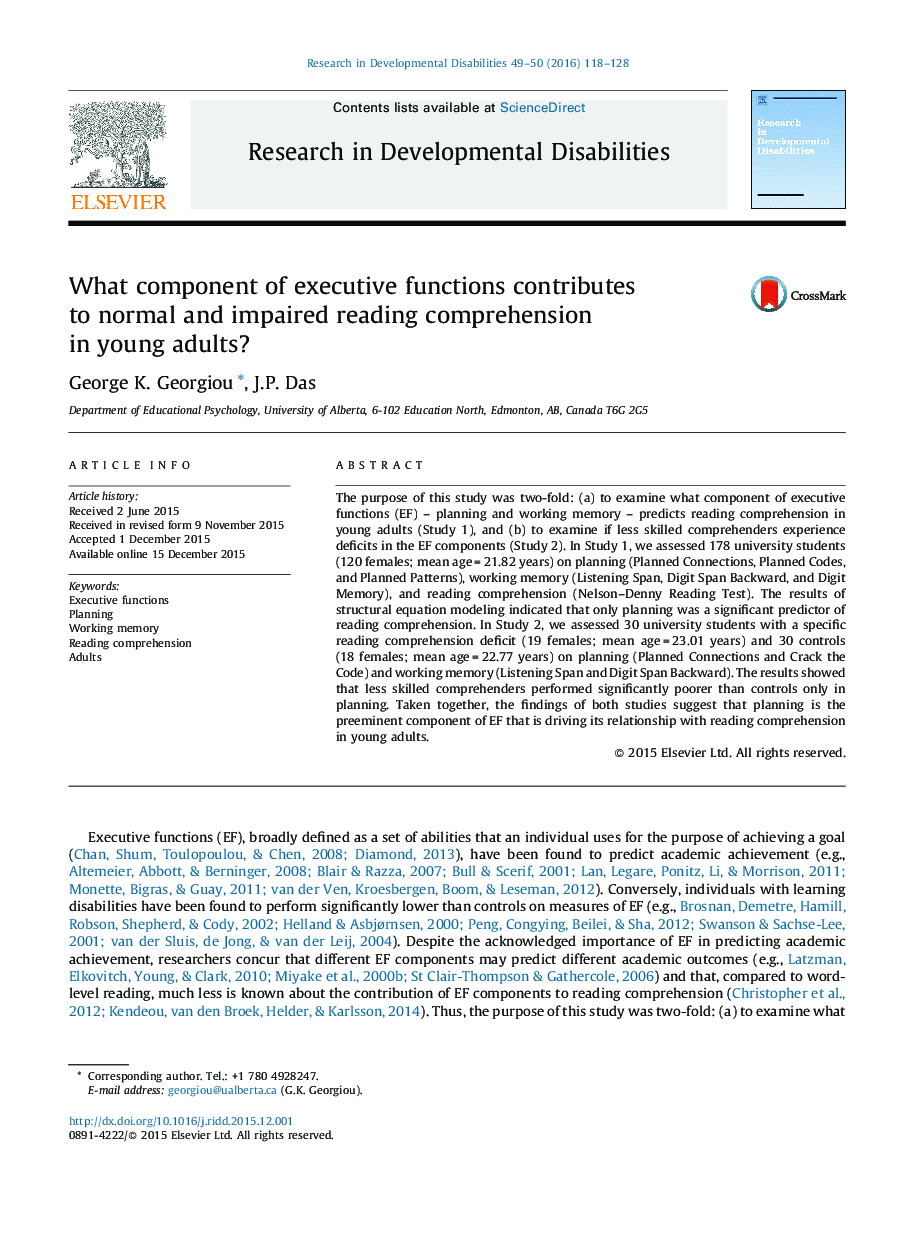| کد مقاله | کد نشریه | سال انتشار | مقاله انگلیسی | نسخه تمام متن |
|---|---|---|---|---|
| 371049 | 621895 | 2016 | 11 صفحه PDF | دانلود رایگان |
• Study 1 examined the role of planning and working memory in comprehension.
• Study 2 assessed specific poor comprehenders in planning and working memory.
• Both studies highlight the role of planning, but not working memory, in comprehension.
The purpose of this study was two-fold: (a) to examine what component of executive functions (EF) – planning and working memory – predicts reading comprehension in young adults (Study 1), and (b) to examine if less skilled comprehenders experience deficits in the EF components (Study 2). In Study 1, we assessed 178 university students (120 females; mean age = 21.82 years) on planning (Planned Connections, Planned Codes, and Planned Patterns), working memory (Listening Span, Digit Span Backward, and Digit Memory), and reading comprehension (Nelson–Denny Reading Test). The results of structural equation modeling indicated that only planning was a significant predictor of reading comprehension. In Study 2, we assessed 30 university students with a specific reading comprehension deficit (19 females; mean age = 23.01 years) and 30 controls (18 females; mean age = 22.77 years) on planning (Planned Connections and Crack the Code) and working memory (Listening Span and Digit Span Backward). The results showed that less skilled comprehenders performed significantly poorer than controls only in planning. Taken together, the findings of both studies suggest that planning is the preeminent component of EF that is driving its relationship with reading comprehension in young adults.
Journal: Research in Developmental Disabilities - Volumes 49–50, February–March 2016, Pages 118–128
